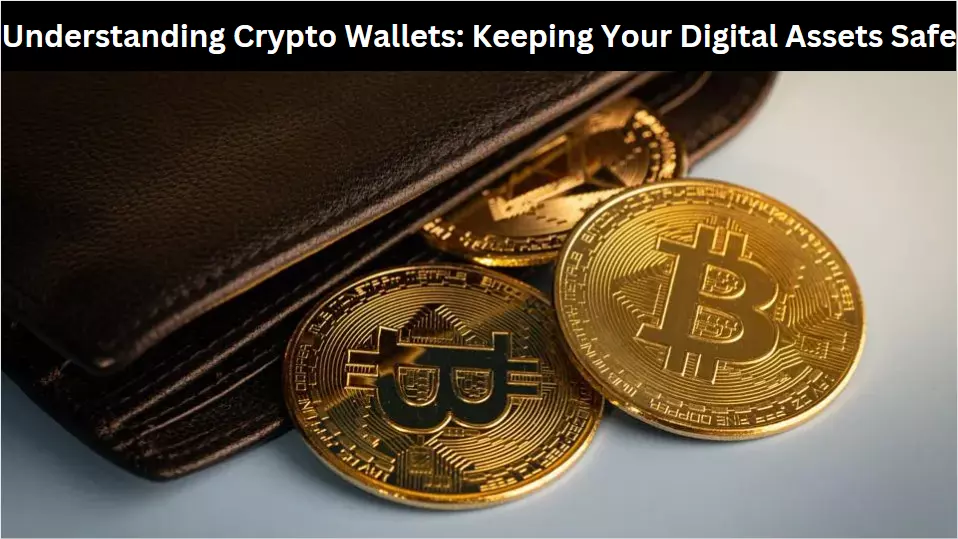In recent years, the world has witnessed a remarkable rise in cryptocurrencies, with Bitcoin leading the charge as a popular mobile-friendly trading platform. As digital currencies become more prevalent, the need for secure storage and management of these valuable assets has become increasingly vital.
This article aims to shed light on the significance of crypto wallets in safeguarding digital assets and explore the various types of wallets available to crypto enthusiasts.
What is a Crypto Wallet?
A crypto wallet is a digital tool allowing users to store, receive, and manage their cryptocurrencies securely. At its core, a wallet contains a pair of cryptographic keys, a public key used to receive funds and a private key that acts as a digital signature for transactions. These keys are crucial in ensuring the security and authenticity of crypto transactions.
Types of Crypto Wallets
Hot Wallets: Hot wallets are online wallets that are connected to the internet, making them easily accessible for daily transactions. They are convenient and user-friendly, suitable for those frequently engaged in cryptocurrency trading and spending. Popular examples of hot wallets include mobile wallets and web wallets. However, due to their online nature, hot wallets are more susceptible to hacking attempts, which may compromise the safety of your digital assets.
- Cold Wallets: On the other hand, cold wallets are offline wallets that store your private keys in a secure and offline environment. Hardware wallets and paper wallets are common types of cold wallets. Since they are not connected to the internet, cold wallets offer superior protection against cyber threats. Users primarily use cold wallets for long-term storage and secure preservation of significant amounts of cryptocurrencies.
- Paper Wallets: A paper wallet is a physical document containing your public and private keys, usually printed in QR codes or alphanumeric strings. The advantage of paper wallets lies in their simplicity and invulnerability to cyberattacks. However, they require careful handling and safekeeping, as physical damage or loss of the paper wallet may lead to irreversible asset loss.
- Hardware Wallets: Hardware wallets are physical devices that store private keys securely. They are considered one of the most secure ways to store cryptocurrencies, as the private keys never leave the device. Hardware wallets protect users from online threats and malware attacks, making them an ideal choice for those prioritizing security.
Security Considerations
Regardless of the type of wallet chosen, crypto enthusiasts should be aware of common security risks associated with digital assets. Phishing attempts, malware, and unauthorized access to accounts are potential dangers users might encounter.
To counter these risks, employing best practices such as creating strong passwords, enabling two-factor authentication (2FA), and keeping software up to date is crucial. oil-profit-app.com/lv assures utmost security in these types of transactions.
Backing Up Your Crypto Wallet
Accidents can happen, and wallets can get lost or damaged. That’s why creating backups of your crypto wallet is essential. Most wallets provide users with seed phrases or recovery keys that can be used to restore access to the wallet in case of emergencies.
Storing these backup phrases offline in a secure location adds an extra layer of protection.
Avoiding Scams and Phishing Attempts
With the growing popularity of cryptocurrencies, the prevalence of scams and phishing attempts has also increased. Scammers often target unsuspecting users with enticing offers or fake websites, attempting to steal their private keys or login credentials.
Being vigilant and verifying the authenticity of websites and platforms can help users avoid falling victim to these scams.
Recovering Lost or Stolen Crypto Assets
In the unfortunate event of losing access to a crypto wallet or experiencing a security breach, it’s essential to act swiftly. Many wallet providers offer customer support services to assist users in recovering lost or stolen assets.
However, the process might be complex and time-consuming, underlining the importance of keeping track of backups and security measures.
The Future of Crypto Wallets
As cryptocurrencies continue to gain traction, crypto wallet technology is evolving rapidly. The future holds promising advancements in user experience, security, and integration with decentralized finance (DeFi) platforms.
With innovations such as Bitcoin Era, mobile-friendly trading platforms set new standards for buying and selling cryptocurrencies efficiently and securely.
Conclusion
Crypto wallets play a pivotal role in ensuring the safety and accessibility of digital assets in the dynamic world of cryptocurrencies. Whether it’s the convenience of hot wallets or the security of cold wallets, users must select the appropriate wallet type based on their trading habits and storage requirements.
By staying informed about the latest security practices and being cautious about potential scams, crypto enthusiasts can confidently navigate the fascinating landscape of digital currencies while keeping their investments secure.
